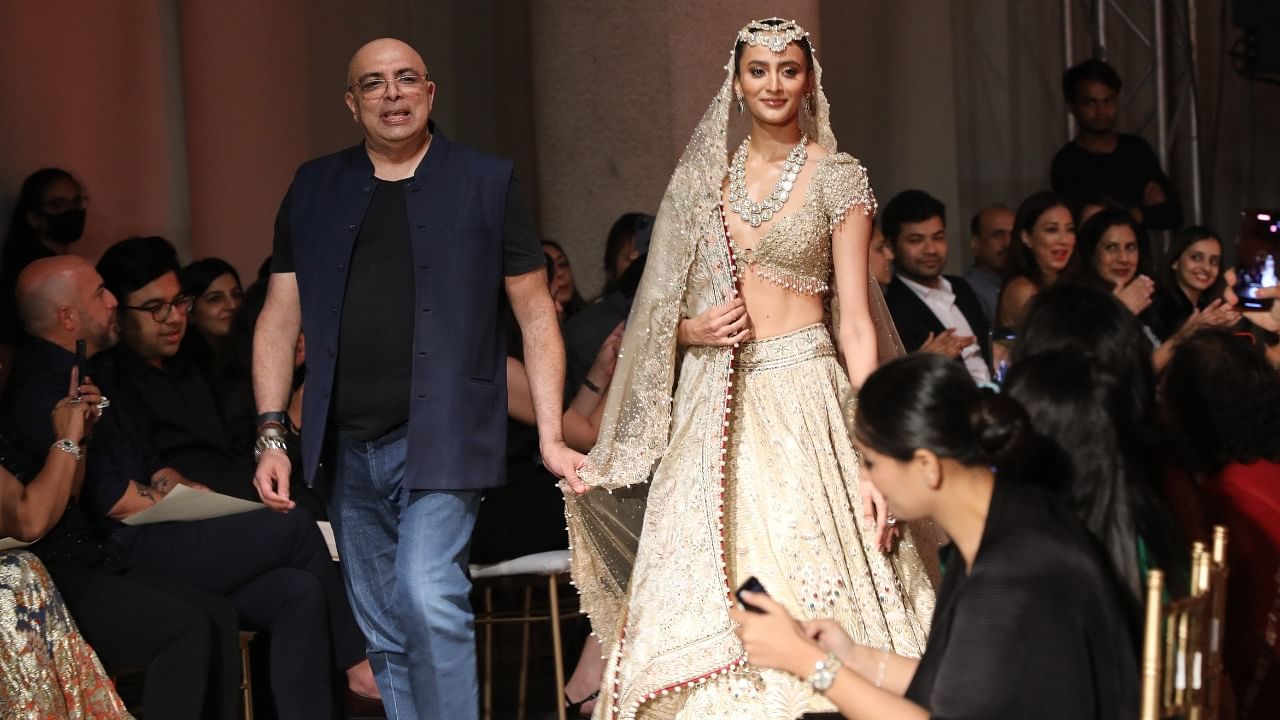
The recently-held FDCI India Couture Week 2022 in Delhi was a grand affair, comparable in scale to its pre-pandemic avatar. While the return of haute couture to the ramps signals a recovery of high-end luxury fashion, some industry experts seem to think it also forecasts a slump for virtual couture retail.
Are clients willing to order online when the best designer studios are open? Fashion Design Council of India chief Sunil Sethi does not think so.
"The best couture is not meant to be sold online," he told DH. "The very nature of couture which is all about an intimate bespoke experience and distance servicing does not work." Fashion designers agree.
Couture brings to mind a grand spectacle of lavishly detailed ensembles created after close interaction between the couturier and the client. It is an exclusive experience for those who can afford the luxury of personalisation and does not lend itself well to e-commerce.
"Online couture was born out of necessity during the pandemic," said top couturier Tarun Tahiliani. "It was the need of the hour to cater to weddings and festivities that had to be held with restrictions during the pandemic. Even for Zoom weddings, couples wanted to look their best on their special day, so online couture came to the rescue."
Big names like Tarun Tahiliani, JJ Valaya, Rahul Misra, and Gaurav Gupta and multi-designer stores such as Ensemble and Curato emphasised their e-commerce services to cater to the demands of the pandemic.
"Given a choice, neither client nor the designer would like to buy or sell haute couture online," said Bengaluru-based menswear designer Manoviraj Khosla. "I always have more people coming to my store than ordering online. The most expensive styles are always bought at the studio."
Couture demands attention to the finest detail. It evolves from highly personalised meetings, detailed discussions and elaborate fitting sessions between the customer and designer. Colour fabric, silhouette and embellishment are done by the client's choice with creative and professional help from the designer. It is a hands-on experience that works better in person than virtually.
The online option is a complex process involving several video meetings with stylists, master tailors and the designer. Clothes are often made for the immediate family and not just the bride.
Bengaluru's Deepika Govind, however, believes that designers cannot afford to forsake e-commerce completely post-Covid. "People are no longer completely averse to buying online because it is possible to communicate what you want through various online means," she said. "This model is beneficial in fulfilling international orders and helps a designer cater to a far bigger market. Clients, however, will order online only if they trust the brand."
Tahiliani is not a great fan of the online retail model for haute couture but admits that it has its uses.
"Since the pandemic, online stores are expanding the niche couture market," said Tahiliani. "Also, they work well for garments like the sari, where only the blouse needs customising. Even if the designer is not present, someone will watch the fitting and make films and notes for the designer's final call before the garment is finished and sent out. It is not preferred, but, at times, online retail is the most viable option. It's a practical solution if you can't come to the store."
(The author is a lifestyle, celebrity, and travel feature writer who has worked in a senior capacity with leading publishing houses)